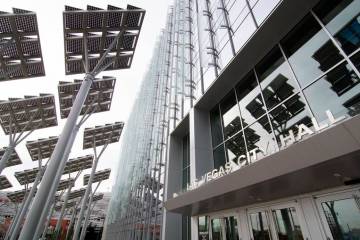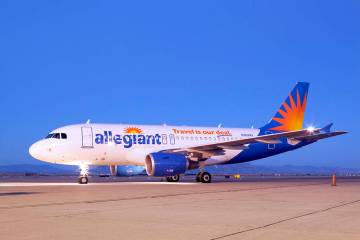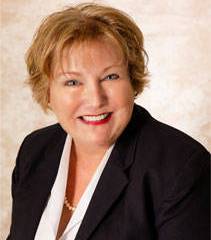Quietly, America is undergoing a profound economic shift.
The evidence is all around us:
▶ Mercedes-Benz USA is leaving New Jersey. The automaker’s headquarters has been in the Garden State for more than four decades, but this summer, its first group of relocated employees will arrive in the Atlanta area. By 2017, all 1,000 staffers will be based at a new, 250,000-square-foot, $100 million campus in Sandy Springs. Noted CEO Stephen Cannon: “There is a migration — not just a company migration — but there’s a population migration from north to south. That’s why cities like Houston and Dallas and San Antonio and Austin and Atlanta are growth cities — so we think if you’re making a 50-year-decision … this doesn’t put us farther away from our customers — in fact it puts us consistent with the way they are moving.”
▶ The City of Huntsville is purchasing land to build a connection between I-65 and I-565, in order to meet the commuting demand from as many as 2,000 new jobs. Polaris Industries, “the unquestioned leader in powersports today,” according to a company executive, is based in Minnesota. But it chose Alabama to site a 600,000-square-foot facility for manufacturing, distribution, and research and development. Polaris will have neighbors. In 2014, Remington Outdoor, Science and Engineering Services, Verizon Wireless, West Corp. and Toyota Alabama announced new projects in the Huntsville region.
▶ An electric-automobile company is a major gamble, but tech guru Elon Musk is moving forward with a 5-million-square-foot battery factory at the pharaonic Tahoe-Reno Industrial Center. As many as 6,500 Nevadans could find work at the Tesla-Panasonic plant. The Reno Gazette-Journal reported that the factory’s “coattail effect is real.” Las Vegas-based data firm Switch is building a 3 million-square-foot facility nearby, and could create thousands of jobs. Many other firms are setting up shop in greater Reno, including Cenntro Automotive, Clear Capital, Nutrient Foods, Beaverfit USA, and Ashima Devices.
▶ Since Jan. 1, South Carolina has attracted job-creating investments from Schaeffler Group USA, a manufacturer of “precision products for machines, equipment and vehicles as well as in aviation and aerospace applications;” The Fitts Company, which “offers a wide range of products including exterior and interior signage, surrounds, buildings and canopies for automated teller machines, modular bank interiors, motor home coaches and other specialty items;” Kobelco Construction Machinery, “a company that specializes in the manufacture, sale and service of construction and transport machinery;” Med-Enroll, “a startup service firm focused on helping its clients find low-cost health care solutions;” and WABCO, “a leading innovator and global supplier of technologies that improve the safety and efficiency of commercial vehicles.”
▶ Toyota is consolidating much of its North American operations in Texas. It is shifting employees from California, New York, and Kentucky to Plano. Thousands of workers will be employed at a 1-million-square-foot campus scheduled to be ready in late 2016 or early 2017. Recently, The Dallas Morning News found that “hundreds of outside contractors will make the massive move to Toyota’s new headquarters,” with opportunities ranging “from administrative assistants to positions in finance, marketing, public relations and advertising.”
None of this is likely to surprise Arthur B. Laffer, Stephen Moore, Jonathan Williams, the authors of “Rich States, Poor States.” Published by the American Legislative Exchange Council, the annual examination of states’ economic outlooks tracks 15 factors that have been “shown over time to be among the most influential variables” for investment and entrepreneurship.
“Rich States, Poor States” names Utah, North Dakota, Indiana, North Carolina, and Arizona as its stars. (Georgia landed in the seventh slot, Nevada in the 10th, and Texas in the 11th.) Destined for oblivion, at least under current policies, are New Jersey, Connecticut, Minnesota, Vermont, and rock-bottom New York. (California ranked 44th.)
What do the winners get right? Taxation is a major factor, from the levies imposed on sales and property to the “progressivity” of income taxes.
Debt service as a share of revenue, number of bureaucrats per 10,000 citizens, and tort law matter as well. Being a right-to-work state is another plus. (In the last few years, Michigan, Indiana, and Wisconsin have rejected compulsory unionism.)
The blue-state policy model is consistent and comprehensive: higher taxes, more “public investments,” unshackled regulatory growth. But with few exceptions, in every state it’s tried, it fails.
Mercedes-Benz gets it. The 21st century won’t take place in New Jersey, a state that has yet to regain its pre-Great Recession employment peak. Capitalists go where capitalism is respected.
That’s why “flyover country” — the Carolinas, the Dakotas, Georgia, Texas, Nevada, and Utah — is America’s future.
Former Nevadan D. Dowd Muska (www.dowdmuska.com) writes about government, economics, and technology from Corrales, N.M.







